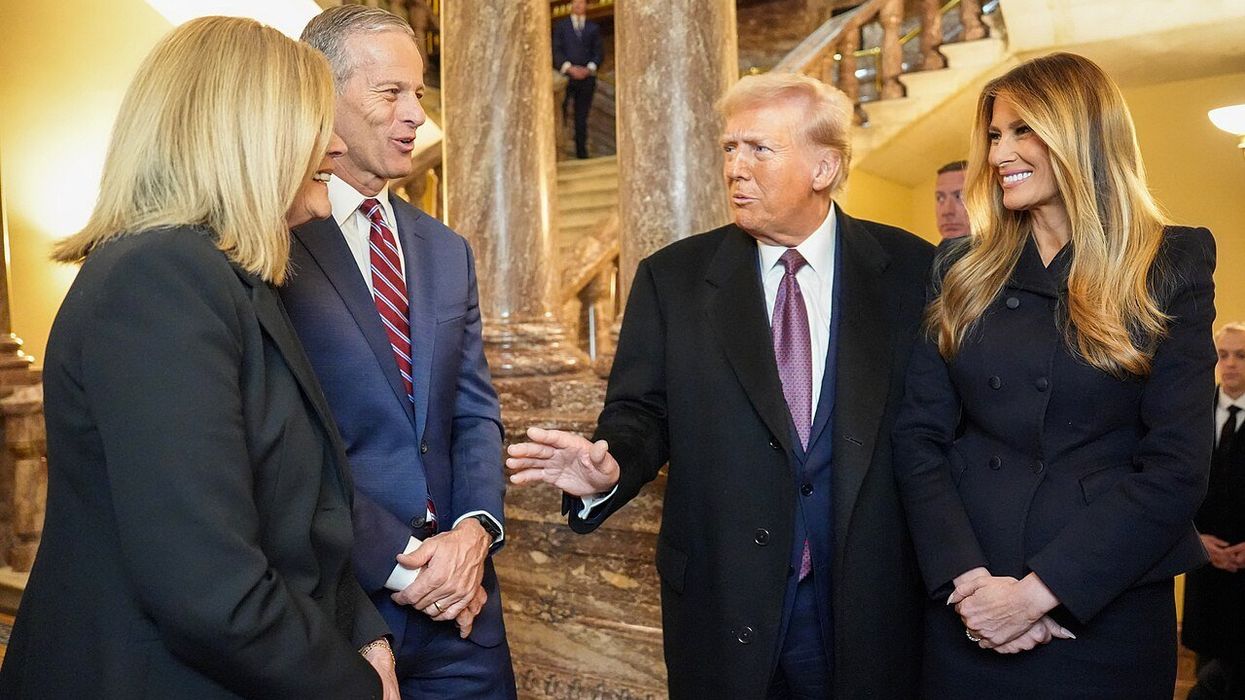President Donald Trump's nonconsecutive second term is seeing some heated debates over the amount of executive powers that he enjoys.
Many Trump critics believe that he seriously overstates the amount of executive powers he has as president, failing to acknowledge the role that the federal government's judicial and legislative branches play in the United States' system of checks and balances. Trump, however, is arguing that federal courts have no business blocking his executive orders.
Ben Olinsky of the Center for American Progress is sounding the alarm about a proposal in the U.S. Senate's version of the One, Big Beautiful Bill Act of 2025. The proposal, according to Olinsky, is "deeply, deeply disturbing" and would undermine the legislative branch's checks-and-balances powers.
READ MORE: 'Go big': Expert explains why Trump pulled the trigger — and what happens next
Newsweek's Sophie Clark, in an article published on June 23, explains, "A provision in the Senate budget bill would allow for millions of dollars to go directly toward President Donald Trump and (his) administration's ability to lay off federal workers without the consent of Congress…. The provision, written by the Senate Committee on Homeland Security and Governmental Affairs, would give $100 million to the Office of Budget Management (OMB), according to Government Executive. The office is run by Project 2025 author Russ Vought, a proponent of mass government layoffs — which are a central tenet of Project 2025."
Olinsky voiced his concerns to Newsweek, warning, "(This bill is) exactly the kind of thing that the president has been trying to do, I would say, illegally, as he seeks to shut down departments or agencies, or limit (agencies) to a handful of staff down from 1000s and do large mass layoffs and other kinds of cuts to entire functions or programs."
According to Olinsky, the 2025 provision differs from a Ronald Reagan-era provision from 1984 that also allowed the president to reorganize the federal government. The 1984 provision, Olinsky says, encouraged participation from Congress.
Olinsky told Newsweek, "Those previous reorganization authorities that were granted to the president still had a role for Congress…. In the current reorganization language, it says that most of the statute that's currently on the books, or that was on the books through 1984, will not apply. And it basically says the president can put together a reorganization plan, and as long as it's making government smaller, it is deemed approved. So, there would be no further review by Congress, no further action. It would simply be automatic. It is approved by this language without (Congress) having seen it first. That is dramatically concerning to me."
READ MORE: 'How much can the Trump base bear?' MAGA infighting 'erupted' over new policy
Read the full Newsweek article at this link.


